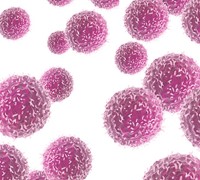
What is a leukopak?
A leukopak is essentially a collection of white blood cells, efficiently gathered into a bag through a procedure known as leukapheresis. During this process, whole blood is passed through an apheresis system, which separates the different components of the blood based on density. The white blood cells are selectively removed, while the rest of the blood is returned to the donor. This cycle continues for several hours, with the donor’s entire blood volume typically passing through the system two to three times. The final leukopak contains at least ten billion mononuclear cells (MNCs), which are a specific type of white blood cell characterised by a single nucleus.
How can leukopaks improve my drug discovery project?
Leukopaks are invaluable in cell therapy development, providing a rich source of peripheral blood mononuclear cells (PBMCs), such as T cells and natural killer (NK) cells. These cells play a crucial role in producing advanced therapies like CAR-T and TCR therapies, which are used to treat cancer and other diseases.
In the production of cell therapies, the quality and consistency of leukopaks are critical to the therapy’s success. They serve as the raw material for genetic modification, expansion, and transformation into therapeutic products. Leukopaks collected from healthy donors offer a standardised and scalable option for cell-based therapies, which is key to moving toward commercial production.
For other drug discovery researchers focussed on immunogenicity testing, leukopaks offer the advantage of providing large volumes of cells from a single donor, collected at one time. This enables scalability and reproducibility that is often not achievable with other formats like buffy coat.
If you need to minimise donor-to-donor variability or require large amounts of cells for repeated experiments, leukopaks could be the ideal solution. Many of our clients have embraced leukopaks for drug screening and safety assessments, thanks to their consistency and reliability.
Why choose Research Donors for my leukopaks?
Our leukopaks are collected by highly trained, fully-equipped nurses with expertise in leukapheresis. We select our apheresis donors from a pool of reliable whole blood donors who meet stringent criteria for apheresis collections.
We also maintain a large standby donor pool, which is regularly screened for serological markers, allowing us to quickly produce leukopaks to fit your specific research timeline.
Unlike some providers that use the total nucleated cell (TNC) count - which includes neutrophils that most researchers don’t require - we base our cell count on mononuclear cells (MNCs). Our leukopaks, therefore, offer a higher number of valuable MNC populations such as T cells, B cells, NK cells, and monocytes.
Additionally, our leukopaks are processed in as little as four hours after collection to ensure maximum cell viability and function.
We also have access to a large and diverse pool of donors, allowing you to customize donor characteristics such as:
- HLA type and blood group
- History of viral infections such as CMV or EBV
- Age (18-66), BMI, ethnicity, sex
- Lifestyle factors, e.g. diet, nicotine, and caffeine use
Donor variability is a known factor in cell therapy manufacturing, and having the ability to recall specific donors can be a huge advantage. We also maintain an inventory of frozen leukopaks and smaller aliquots, which allows for initial donor screening. If needed, we can recall these donors for fresh collections to meet your research needs.
You can browse our online inventory for our fresh and frozen leukopak stock, or you can request a quote for more customised needs. We are here to help make your project a success. If you have any questions about leukopaks or any aspect of our service, feel free to reach out to our friendly team.
For a limited time, save on frozen leukopak orders received by 31st December 2024 to be shipped no later than 31st January 2025.
This blog was inspired by content produced by Research Donors.
